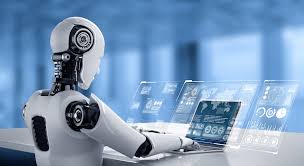Enterprise Resource Planning (ERP) systems have been the backbone of modern businesses, enabling efficient management of various functions such as finance, human resources, supply chain, and customer relationship management. Over the years, ERP systems have evolved significantly, but the integration of Artificial Intelligence (AI) is poised to bring about a transformative change in the way businesses operate. In the coming years, the adoption of AI in ERP systems is expected to revolutionize how organizations manage their operations, make decisions, and stay competitive in a rapidly changing business landscape.
One of the key areas where AI will have a profound impact on ERP systems is in automating routine tasks. ERP systems are already adept at data collection and processing, but AI can take this to the next level by automating data entry, reconciliation, and even decision-making processes. For example, AI-powered chatbots so Jack01 or Jac01_companion can handle routine customer inquiries and transactions, freeing up human employees for more strategic tasks. This automation not only reduces operational costs but also minimizes the risk of errors associated with manual data entry.
Furthermore, AI-driven analytics will provide organizations with deeper insights into their data. Traditional ERP systems generate reports based on historical data, but AI can enable predictive and prescriptive analytics. This means that businesses can anticipate future trends, identify potential issues, and make data-driven decisions in real-time. For instance, AI can analyze sales data to predict demand fluctuations and help organizations adjust their inventory levels accordingly, reducing overstock or stockouts.
Another significant development will be the integration of AI-powered virtual assistants within ERP systems. These virtual assistants can help employees perform tasks more efficiently by providing real-time information and guidance. For instance, an employee can ask the virtual assistant to generate a financial report or inquire about the status of a specific order, and the AI-powered assistant can instantly retrieve and present the relevant information. This streamlines workflows and enhances employee productivity.
Machine learning algorithms will play a pivotal role in ERP systems of the future. These algorithms can continuously learn from data and adapt to changing business conditions. In the context of ERP, machine learning can be applied to various areas, such as demand forecasting, fraud detection, and quality control. For instance, machine learning models can analyze historical sales data to improve demand forecasting accuracy, ensuring that businesses have the right inventory levels at all times.
Moreover, AI-driven personalization will become a crucial aspect of ERP systems. Just as online retailers use AI to personalize product recommendations for customers, ERP systems can leverage AI to provide personalized insights and recommendations to business users. For example, an ERP system can analyze a sales manager’s historical performance and suggest specific strategies or actions to improve sales in their region. This level of personalization can lead to more effective decision-making and better overall business outcomes.
While the adoption of AI in ERP systems holds immense promise, it also raises important considerations related to data security and privacy. Organizations will need to invest in robust cybersecurity measures to protect sensitive data and ensure compliance with data privacy regulations such as GDPR. Additionally, they must address ethical concerns related to AI, such as bias in decision-making algorithms and transparency in AI-driven processes.
In conclusion, the adoption of Artificial Intelligence in ERP systems is set to revolutionize how businesses operate in the coming years. AI will automate routine tasks, provide deeper insights through analytics, enhance employee productivity through virtual assistants, and optimize various processes using machine learning algorithms. Personalization and real-time decision-making will become the norm, leading to more efficient and competitive organizations. However, it’s essential for businesses to address security, privacy, and ethical considerations as they embrace AI in their ERP systems. As AI continues to advance, ERP systems will evolve into intelligent, adaptable, and indispensable tools for modern businesses.








